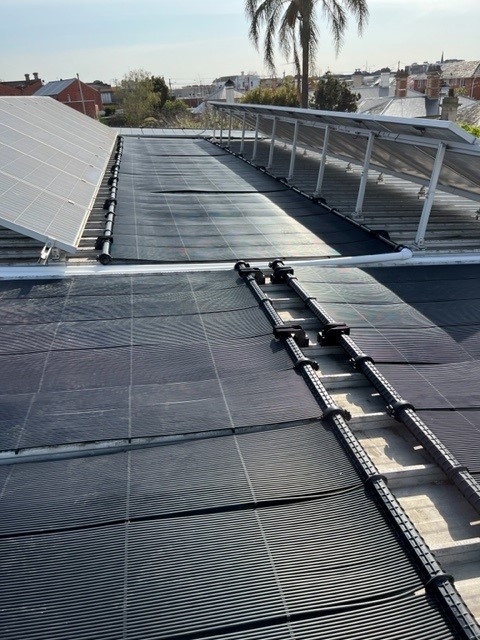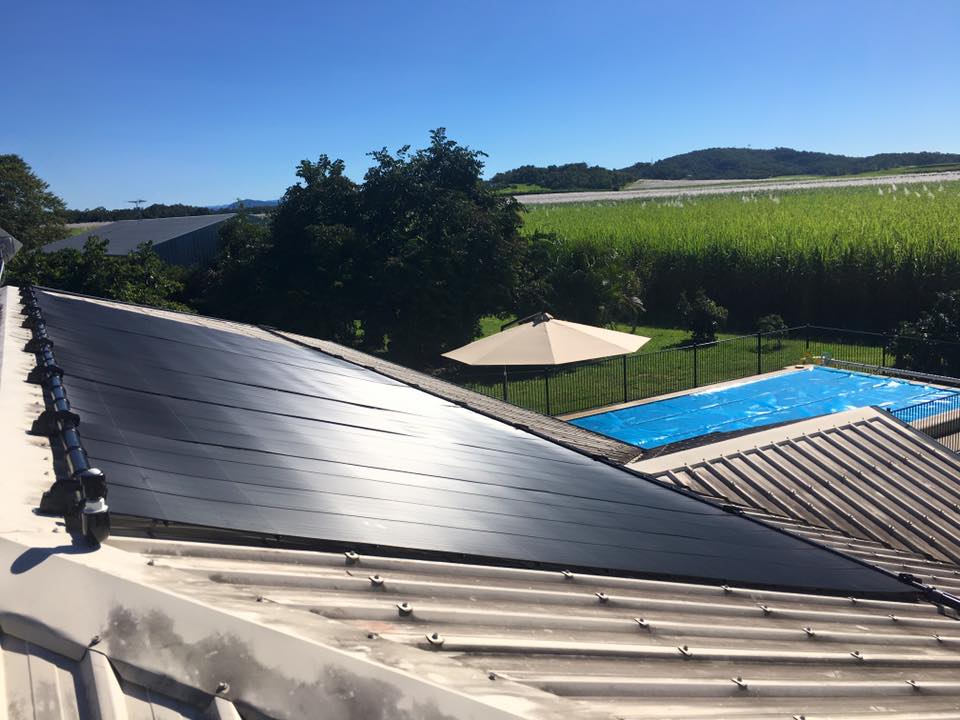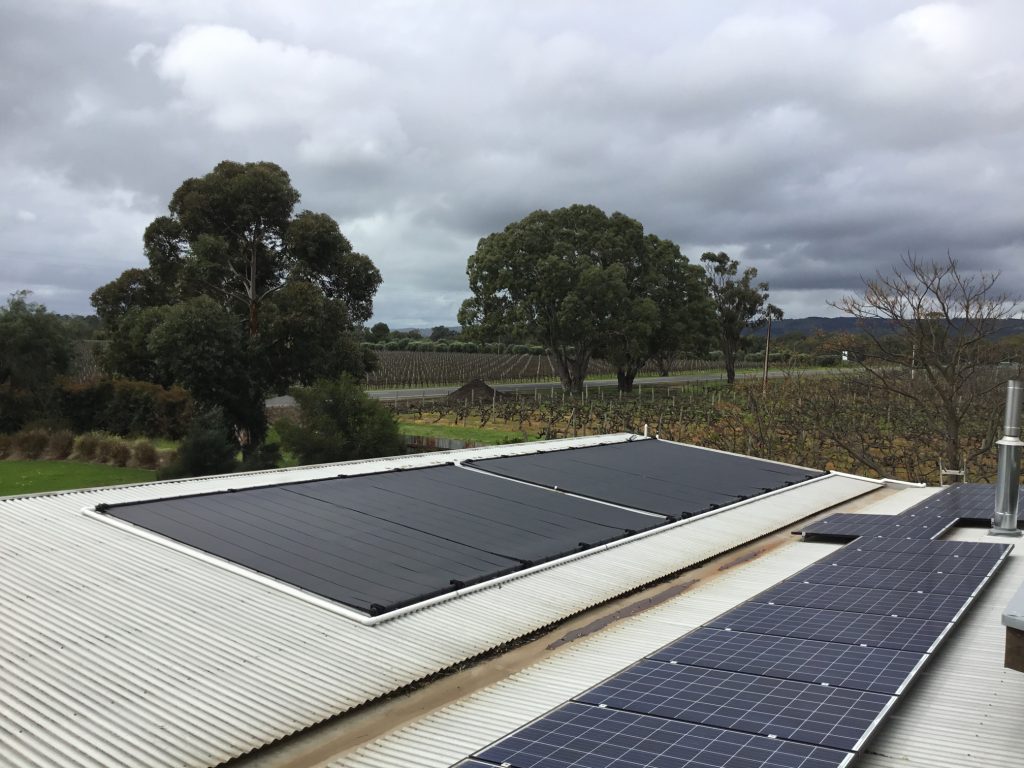Pool heaters have a reputation for being pricey, unreliable, slow, and bad for the environment. But thanks to solar pool heating systems, there is an affordable, eco-friendly and efficient way to accommodate your pool-heating needs.
What’s a pool heater, anyway?
Pools come in all different shapes, sizes and designs and each serves a unique purpose. Depending on its intended use, a pool may or may not need to be heated throughout the year; a private swimming pool in a summer home, for example, may not necessarily need to be heated in the winter. An indoor pool in a large gym would likely make use of its pool heaters year-round.
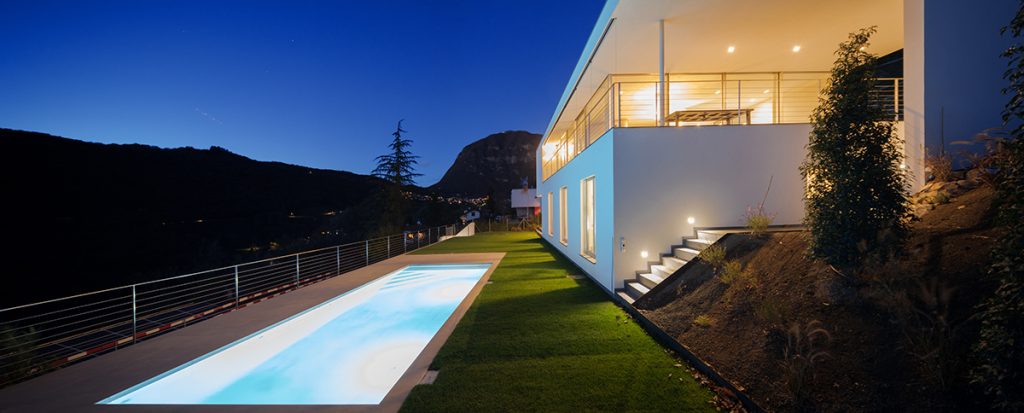
Pool heaters allow us to regulate the temperature in the pool, no matter the climate, season, or location. Every type of cool can be heated, whether recreational or industrial, above or in ground, indoor or outdoor. But the type of heating system, impacted by factors like performance, speed and power source, will vary.
How do pool heating systems work?
To maintain a comfortable temperature in a pool, the cold pool water is removed from the pool and runs through an external heating system. Once the water is heated, it is then sent back into the pool. Traditional pool heaters use either electric or gas heating systems.
With a gas pool heating system, natural gas or propane is burned in a combustion chamber and generates heat. A pump circulates the cold pool water through the chamber’s pipes and the heat is transferred to the water. Electric pool heating systems, also known as heat pumps, use outside air to transfer heat into the water through a refrigeration cycle.
Thanks to rising concerns for the environment and the advent of innovative technologies, there is a third and more eco-friendly heating solution: solar heating systems. Solar heaters use thermal panels to harness the heat from the sun. Cold water from the pool is heated when it is pumped into the hot solar panels.
The Best Method For Heating Your Pool
When considering your options for pool heating solutions, it’s important to first assess the different factors that will inform your choice. Along with the type of pool and its surrounding environment, it is important to consider things like budget, maintenance, your pool’s footprint and the desired energy source. It’s also a matter of personal preference; you should be considering how often you plan on using your pool, and how quickly you want it to be heated.
Gas pool heaters are a fast and relatively cheap option that can be used year-round, but they also emit harmful carbon dioxide and have shorter lifespans than the alternatives.
Electric heaters are more reliable than gas heaters as they rely solely on electricity, and are most likely more cost-efficient in the long run as a result. However, they take longer to heat and will not work in temperatures colder than 45℉ / 7.2℃.
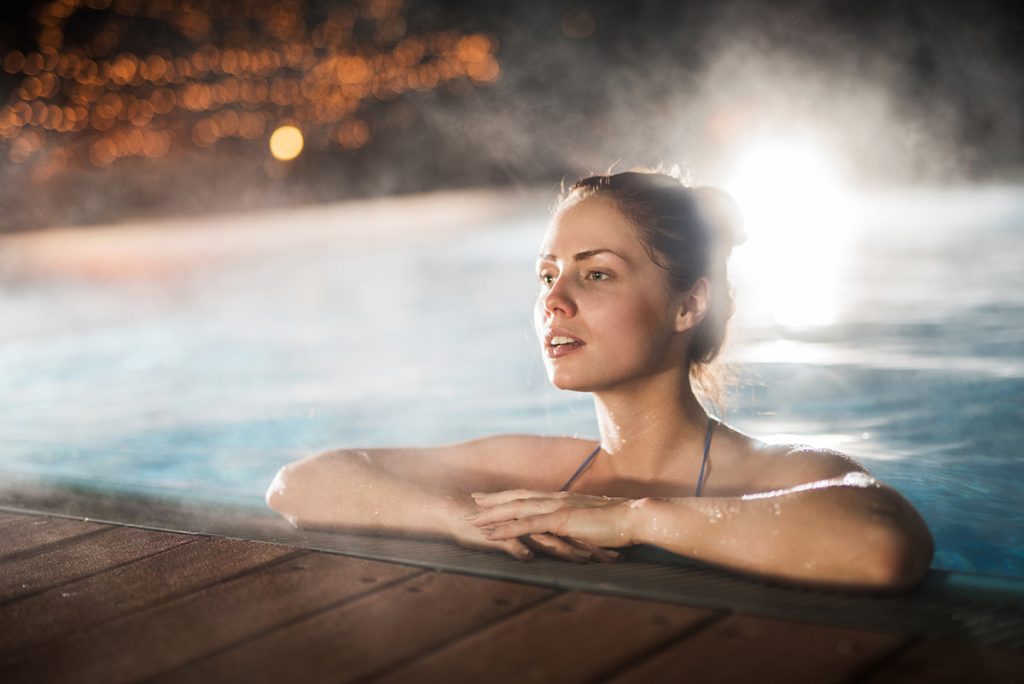
Solar pool heaters rely on thermal heat from the sun, which is essentially a constant and free source of heat. While installing solar panels can be costly upfront, there are no monthly operational costs; with gas and electric heaters, the more energy they use, the higher the gas or electric bill. On top of that, solar pool heating systems usually lasts longer than both the electric and gas alternatives.
During the colder months, places with cooler temperatures may not get enough sun to fully power the solar panels. In colder climates, heater pumps can be used to supply an extra dose of energy when needed. A solar site analysis can be performed to measure the site’s solar resource and to determine the system and sizing requirements.
Finally, though it is not a pool heating system per say, investing in a pool cover for both indoor and outdoor pools is the most efficient way to lessen the costs of heating a pool. Covering a pool helps reduce evaporation and thus diminish the amount of heat that is lost. It also reduces the need to ventilate the indoor air, which ultimately saves even more energy.
We know it’s a lot. But before you go off the deep end, let us reassure you – there may not be a one-size-fits-all solution when it comes to pool heating, but there is a pool heating system that will efficiently and effectively meet your needs.
Speak to one of our experts to discuss the best solar heating solution for your pool today.

